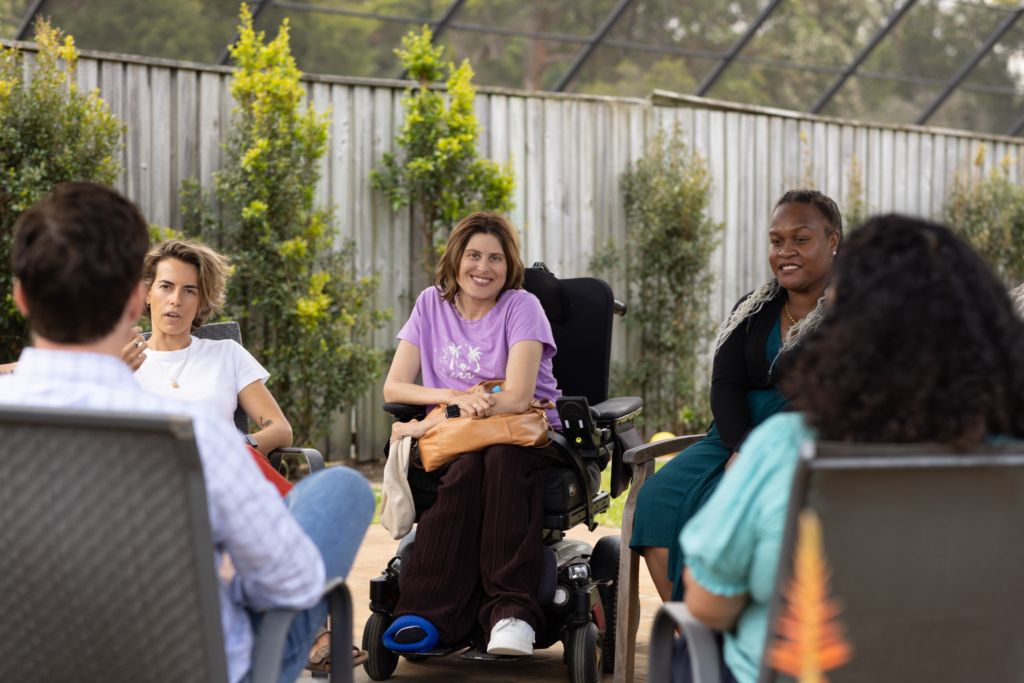Sensei’s Nicole McCartin shares her experience in driving successful project outcomes.
At Sensei, we don’t just understand project management; we live it. Our team has seasoned members with hands-on experience managing projects in a range of organisations and industries, leveraging this knowledge when implementing modern PPM solutions. We know what drives your day, and we recognise what lies beneath the surface of delivering successful projects. That’s why our approach goes beyond frameworks and tools; we bring practical, experience-driven guidance that translates into tangible outcomes for our clients.
Project management requires a careful balance of operational expertise, leadership, and adaptability. To uncover what creates real success, we spoke with Nicole McCartin, one of Sensei’s experienced project managers, to explore her philosophy, techniques, and the often-invisible layers of project leadership.
Defining Project Management: Influence at its core
For Nicole, project management is much more than planning and execution; it’s fundamentally about influence. She frames her work as being an agent who transforms a business’s intangible ideas into a valuable and concrete reality. This involves working efficiently within the constraints of time, cost, and resources, while also requiring a dynamic approach to identifying continuous improvements. The best project managers, she contends, are those who can inspire and empower their teams, leading them toward success even when challenges emerge and circumstances shift.
What sets Sensei apart
At Sensei, project diversity is both a challenge and a highlight. Nicole is motivated by the need to adapt her skill set and methodologies to suit different markets, including the public sector, utilities, education, construction, and more. Each engagement requires a tailored approach, leveraging methodologies such as PRINCE2 and Scrum, with the flexibility to customise delivery to each client’s specific needs. This dynamic environment has enabled Nicole to develop a broad range of expertise and a high degree of adaptability. As she puts it, “Every project, regardless of the industry, expands our toolkit and sharpens our ability to deliver meaningful results tailored to each client’s unique needs.”
Tools and methodologies that matter
A cornerstone of project delivery at Sensei is Altus, an all-in-one project management platform. Nicole emphasises how this tool streamlines her workflow: “Altus brings every control and metric together, keeping everything from finances to resource planning consistent and easy to access.” Yet tools alone aren’t enough. Nicole combines Altus with Microsoft Azure DevOps for agile development, robust frameworks like PRINCE2 for governance, and even analogue solutions, such as a simple pen and notebook for initial idea capture. This blend of digital and traditional methods means nothing falls through the cracks, and every insight is quickly recorded and transformed into formal plans.
Strategies for successful team leadership
Nicole believes that successful leadership is built on clarity, adaptability, and a genuine focus on people. From the outset of any project, she sets clear expectations so that every team member understands their role, responsibilities, and what success looks like. Without this clarity, she believes projects can quickly become misaligned or inefficient.
A key part of her approach is knowing when to say “no.” Nicole understands that a project manager shouldn’t try to do everything. By setting boundaries and pushing back on requests that stretch resources or dilute focus, she protects the team’s energy for what matters most. This also creates space for others, especially subject matter experts, to lead and take ownership in their areas.
Communication is a cornerstone of Nicole’s leadership approach. She believes that adapting her communication style to suit everyone, whether by adjusting tone, format, or level of detail, helps build trust, foster inclusion, and ensure every team member feels heard and understood.
Nicole sees leadership as less about control and more about influence. By tuning into team dynamics, offering thoughtful support, and empowering others, she creates the conditions for high performance and long-term success.
Navigating conflict and risk
Nicole approaches conflict and risk as opportunities to strengthen teams and improve outcomes. Rather than viewing conflict as a disruption, she uses it to surface misalignment, promote open dialogue, and build stronger relationships. She emphasises active listening to ensure all perspectives are heard before moving toward a resolution, helping to address root causes rather than surface-level symptoms.
In managing risk, she blends data from tools like Altus with professional intuition. While historical records guide early identification, her experience and “trusting gut instincts” help detect risks that data may not yet reveal. This proactive approach, combined with open communication among stakeholders, ensures that risks are addressed collaboratively and promptly.
Nicole’s methods demonstrate that with empathy, transparency, and strategic awareness, conflict and risk can become drivers of stronger performance and lasting project success.
Quality standards, resource allocation, and measuring success
Nicole states that high standards of quality are maintained by pairing empowerment with constant feedback. Her teams are encouraged to take ownership of their work, while regular check-ins, planning sessions, reviews, and retrospectives ensure ongoing alignment with established standards. This iterative approach means issues are caught and addressed early, long before delivery.
Effective resource allocation is a team effort at Sensei, likened to a game of “resourcing Jenga.” Dynamic heat mapping visualises workloads and allows the PMO to continually adapt resource assignments in real time. Matching the right skills to the right tasks reduces context switching and drives better outcomes.
For Nicole, success is measured both through traditional KPIs and through specific, measurable objectives set at the project’s start, such as user adoption rates or drastic reductions in administration time. By establishing these metrics up front, post-project reviews become more meaningful and actionable.
The invisible work and the agent of change
A significant portion of a project manager’s work, like managing difficult conversations, shielding teams from conflict, and handling stakeholder expectations, often goes unseen. Nicole points out that this “invisible work” is a hallmark of good project management: “If the team feels like things are running smoothly, that means the PM is doing a lot of unseen but crucial work behind the scenes.”
Project managers at Sensei are also catalysts for change, constantly refining frameworks and practices based on each new project’s learning. Their adaptability fuels organisational evolution and keeps the company ahead amidst constant technological shifts. “If every project ran as planned, you wouldn’t need a PM,” Nicole laughs, emphasising the importance of agility.
Project managers are driving innovation.
Innovation flourishes when teams feel empowered to explore, experiment, and even fail within set boundaries. Nicole fosters curiosity within her teams, creating safe spaces for learning as well as delivery. This balanced approach ensures teams not only meet their obligations but are also invested in organisational growth and future readiness.
Final remarks
Nicole’s insights make it clear that project management is as much about people and culture as it is about process and execution. Through influence, adaptability, and a relentless focus on both quality delivery and innovation, project managers ensure not just the completion of projects, but their lasting impact across the organisation. Their work might often be behind the scenes, but the results are felt through seamless project delivery, empowered teams, and a company ready to evolve with every new challenge.
To learn more about joining the Sensei team, visit our career page here.



